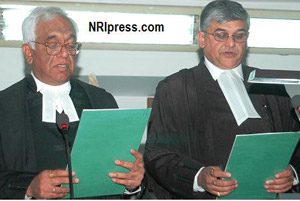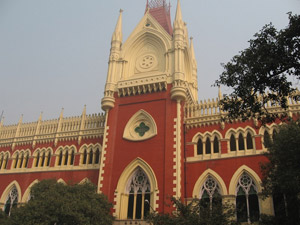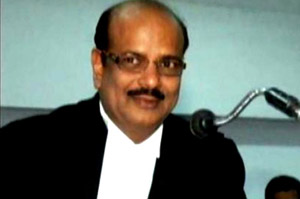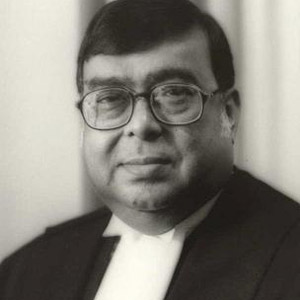Offbeat (16): Should Retired Judges be Fossils?
By John B. Monteiro
Bellevision Media Network
It doth appear you are a worthy judge;
You know the law, your exposition
Hath been most sound.
- William Shakespeare, English dramatic poet (1566-1616) in Merchant of Venice.
That sharpness of mind and quality of exposition is now sought to be put into cold storage for two years after retirement of higher judicial offecers, only to be defrosted after tow years of compulsory shut off. But, first the facts, as reported in The Hindu (3-`10-12) by J Venkatesan..
 08 October 2012: The Constitution and various laws must be amended to prevent judges of the Supreme Court and the High Courts from taking up post- retirement jobs, say legal experts. A couple of days ago, Leader of the Opposition in the Rajya Sabha Arun Jaitley suggested an embargo on the appointment of retired judges of the Supreme Court or the High Court to commissions.
08 October 2012: The Constitution and various laws must be amended to prevent judges of the Supreme Court and the High Courts from taking up post- retirement jobs, say legal experts. A couple of days ago, Leader of the Opposition in the Rajya Sabha Arun Jaitley suggested an embargo on the appointment of retired judges of the Supreme Court or the High Court to commissions.
BJP president Nitin Gadkari has suggested a “cooling-off period” of two years from the date of retirement to the date of appointment.
Supreme Court lawyer Mohan Katarki, an expert in inter-State water disputes, says: “At present, the Constitution neither prohibits judges of the Supreme Court or the High Court from taking any post-retirement job nor restricts the power of the government to appoint any retired judges… to commissions and/or tribunals.
judges of the Supreme Court or the High Court from taking any post-retirement job nor restricts the power of the government to appoint any retired judges… to commissions and/or tribunals.
The only provision which places restriction on the post-retirement occupation of the judges of the High Courts is Article 220 which states: ‘No person who, after the commencement of this Constitution, has held office as a permanent Judge of a High Court shall plead or act in any Court or before any authority in India, except the Supreme Court and the other High Courts’.”
“Several Central or State laws,” Mr. Katarki says, “require appointment of the retired judges of the Supreme Court or the High Courts as either members or chairmen of tribunals. If the “cooling-off period” is to be introduced, it can be done only by an amendment to the Constitution by incorporating a provision similar to Articles 148 or 319. Alternatively, the existing laws which permit appointment of retired Supreme Court or High Court judges should be amended. A special law can also be passed by Parliament prohibiting retired judges from taking up any appointment for two years.”
 He says: “The tribunals constituted under the provisions of the Inter-State River Water Disputes Act of 1956, read with Article 262 of the Constitution, are the transferees of ‘judicial power of the State’ vested in the Supreme Court under Article 131. The provisions of the Act require nomination of sitting judges of the Supreme Court or the High Courts as chairmen and members of the tribunals. However, once appointed, the chairmen and members continue even after their retirement, virtually becoming a post-retirement appointment.” Katarki says: “The services of retired judges are in great demand, as people have faith in their impartiality and independence. Besides, the judicial minds are known for objectivity and in-depth analysis. The due process which judges adopt while discharging their functions in the tribunals or commissions promote the policy of inclusiveness and participation, though such a procedure is being often criticised as lengthy and cumbersome benefiting lawyers.”
He says: “The tribunals constituted under the provisions of the Inter-State River Water Disputes Act of 1956, read with Article 262 of the Constitution, are the transferees of ‘judicial power of the State’ vested in the Supreme Court under Article 131. The provisions of the Act require nomination of sitting judges of the Supreme Court or the High Courts as chairmen and members of the tribunals. However, once appointed, the chairmen and members continue even after their retirement, virtually becoming a post-retirement appointment.” Katarki says: “The services of retired judges are in great demand, as people have faith in their impartiality and independence. Besides, the judicial minds are known for objectivity and in-depth analysis. The due process which judges adopt while discharging their functions in the tribunals or commissions promote the policy of inclusiveness and participation, though such a procedure is being often criticised as lengthy and cumbersome benefiting lawyers.”
Senior lawyer Raju Ramachandran says all laws which require appointment of retired Supreme Court/High Court judges must be amended to ensure they are not given post-retirement benefits. “It is possible to bring such amendments if Parliament wants revamping of various laws and applies its mind to the change.” Alternatively, the Constitution can be amended to make all tribunals/bodies as an adjunct of the Supreme Court/High Court to enable sitting judges to take up matters assigned to them. Green Benches have already been functioning in the High Courts, he says, and Benches for inter-State water disputes and for adjudication of various matters could be made part of the judicial functions. This will help eliminate appointment of retired judges. The retirement age of Supreme Court judges should be raised from 65 to 70. Also, appointing only judicial officers to various bodies must be re-examined, Mr. Ramachandran says.
amended to ensure they are not given post-retirement benefits. “It is possible to bring such amendments if Parliament wants revamping of various laws and applies its mind to the change.” Alternatively, the Constitution can be amended to make all tribunals/bodies as an adjunct of the Supreme Court/High Court to enable sitting judges to take up matters assigned to them. Green Benches have already been functioning in the High Courts, he says, and Benches for inter-State water disputes and for adjudication of various matters could be made part of the judicial functions. This will help eliminate appointment of retired judges. The retirement age of Supreme Court judges should be raised from 65 to 70. Also, appointing only judicial officers to various bodies must be re-examined, Mr. Ramachandran says.
Why should judges be singled out to go into hibernation and run the risk of losing touch with their craft? The subject is open to many views. What are yours?
Chew on This!

John B. Monteiro, journalist and author, is Editor of his website, www.welcometoreason.com (Interactive Cerebral Challenger) – with provision for instant response. Try responding!
 Write Comment |
Write Comment |  E-Mail To a Friend |
E-Mail To a Friend |
 Facebook |
Facebook |
 Twitter |
Twitter |
 Print
Print 


















